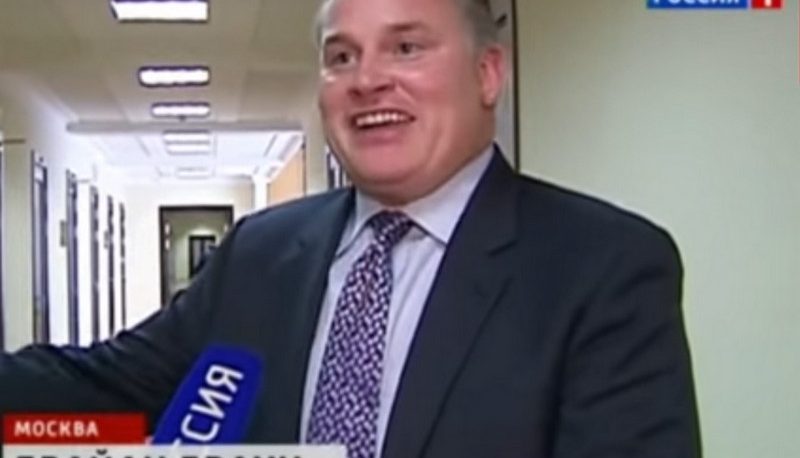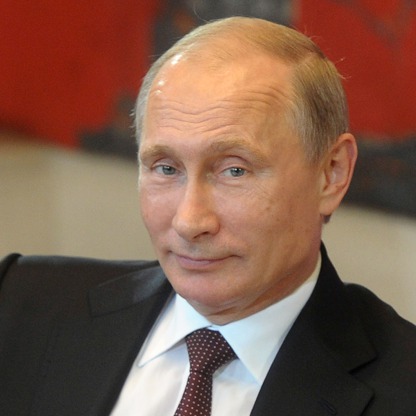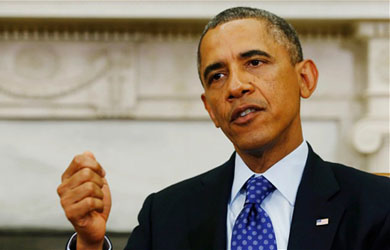Will the Religious Right’s adoration for Vladimir Putin’s Russia fade now that the U.S. Commission on International Religious Freedom has, for the first time, placed Russia among the group of nations whose governments engage in or tolerate “particularly severe religious freedom violations that are systematic, ongoing, and egregious?” The USCIRF’s 2017 annual report, which was released on Wednesday, classified Russia as a “country of particular concern.” Here’s what it says:
Russia represents a unique case among the countries in this report—it is the sole state to have not only continually intensified its repression of religious freedom since USCIRF commenced monitoring it, but also to have expanded its repressive policies to the territory of a neighboring state, by means of military invasion and occupation. Those policies, ranging from administrative harassment to arbitrary imprisonment to extrajudicial killing, are implemented in a fashion that is systematic, ongoing, and egregious. In mainland Russia in 2016, new laws effectively criminalized all private religious speech not sanctioned by the state, the Jehovah’s Witnesses stand on the verge of a nationwide ban, and innocent Muslims were tried on fabricated charges of terrorism and extremism. In the North Caucasus, particularly in Chechnya and Dagestan, security forces carried out arrests, kidnappings, and disappearances of persons suspected of any links to “nontraditional” Islam with impunity. In Crimea, occupied by Russia since 2014, Russian authorities have coopted the spiritual life of the Muslim Crimean Tatar minority and arrested or driven into exile its community representatives. And in the Russian-occupied para-states of eastern Ukraine, religious freedom is at the whim of armed militias not beholden to any legal authority. Nor did Russia show any tolerance for critics of these policies in 2016; the two most prominent domestic human rights groups that monitor freedom of religion or belief were officially branded as “foreign agents.”
As we noted last week, Russia has in fact banned the Jehovah’s Witnesses by branding the church as an extremist organization and winning a court order allowing the government to seize its headquarters and churches. Last year, Putin signed a law designed to strengthen the favored status of the Russian Orthodox Church by prohibiting most missionary activity and evangelizing. Newsweek notes that “the consequences of the law have exclusively affected members of minority ‘foreign’ religions—the Church of Jesus Christ of Latter-Day Saints, the International Society for Krishna Consciousness, Jehovah’s Witnesses and Protestants with Baptist, Pentecostal and Seventh-day Adventist roots.”
It’s impossible to ignore the fact that U.S. Religious Right groups, who claim Christians in the U.S. are facing “persecution,” have been among Putin’s biggest boosters, cheering when Putin began explicitly promoting himself as a defender of Christian civilization. They raved about his anti-gay policies and his supporters’ attacks on the European Union as a symbol of a decadent, secularist West. In 2015 Brian offered this recap:
Evangelist Franklin Graham hailed Putin as a hero for taking “a stand to protect his nation’s children from the damaging effects of any gay and lesbian agenda” even as “America’s own morality has fallen so far on this issue”; Bryan Fischer called Putin a “lion of Christianity” and called upon U.S. lawmakers to adopt similar speech prohibitions; Matt Barber marveled that Putin was able to “out-Christian our once-Christian nation”; Sam Rohrer called Putin “the moral leader of the world”; Scott Lively lavished praise on Putin for “championing traditional marriage and Christian values”; and Rush Limbaugh applauded Putin for stopping “a full-frontal assault on what has always been considered normalcy.”
Will Putin’s increasingly severe attacks on religious freedom lead to a major re-evaluation of the Religious Right’s enthusiasm for his regime? Don’t count on it.
Anti-LGBTQ activist Brian Brown, who now heads both the National Organization for Marriage and the International Organization for the Family, has cultivated close ties with Putin allies. “Of course there is a huge area of cooperation,” Brown says in an April 18 Financial Times story. “We’ve been working with Russian friends for quite a long time.” Indeed he has, having traveled to Moscow in 2013 to encourage parliamentarians to hold the line against LGBTQ rights.
In December, Russian activist Alexey Komov traveled to South Africa to help Brown launch the IOF, declaring that he would be promoting its efforts “using the parliamentary channels of the Russian federation.” Brown has since returned to Moscow to promote the IOF’s manifesto on the family and presumably to try to raise money for the group.
Brown isn’t the only one whose concern for religious freedom seems to take a back seat to anti-LGBTQ politics. Last year, American Religious Right activists led by C-Fam’s Austin Ruse held a day-long conference at the United Nations to promote the “Group of Friends of the Family,” a network of nations Ruse helped organize to lobby against international recognition of LGBTQ people or families. Among the countries in the network, and those singled out for praise by Ruse, are many of the countries deemed by the USCIRF as the worst in the world for religious freedom.
While the Family Research Council’s Tony Perkins took note of the USCIRF report on Russia this week, he quickly shifted gears to blame former President Barack Obama for the worsening situation for religious minorities in many parts of the world, saying, “After eight years of Obama’s war on faith, it’s time for America to pick up the torch of liberty and find its voice on the crisis.”









